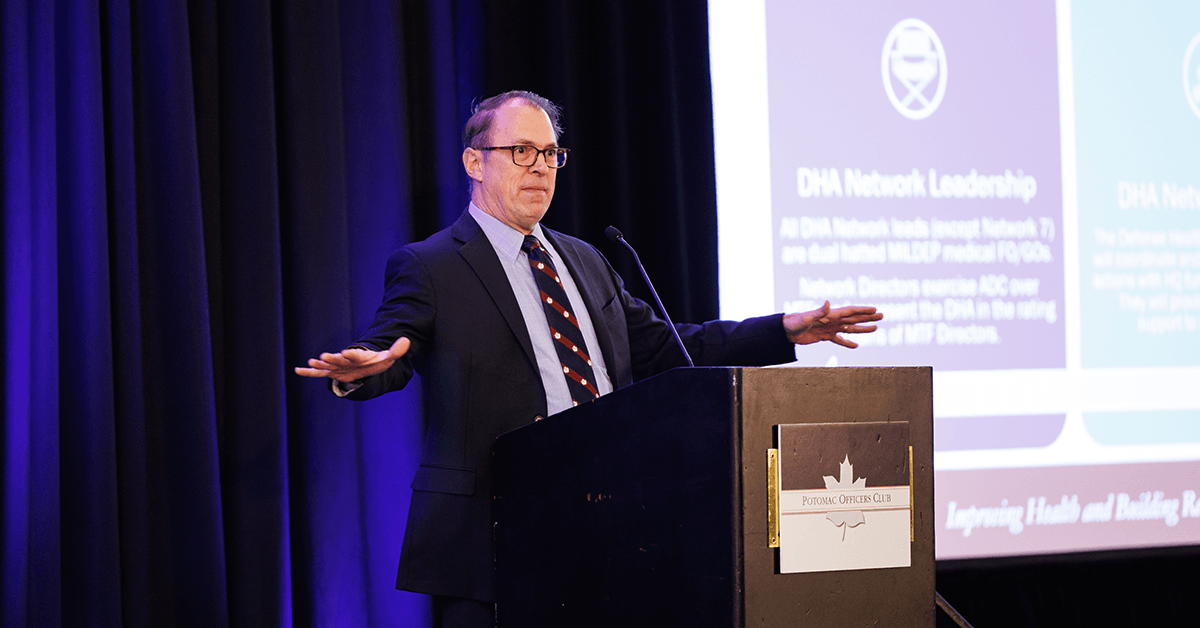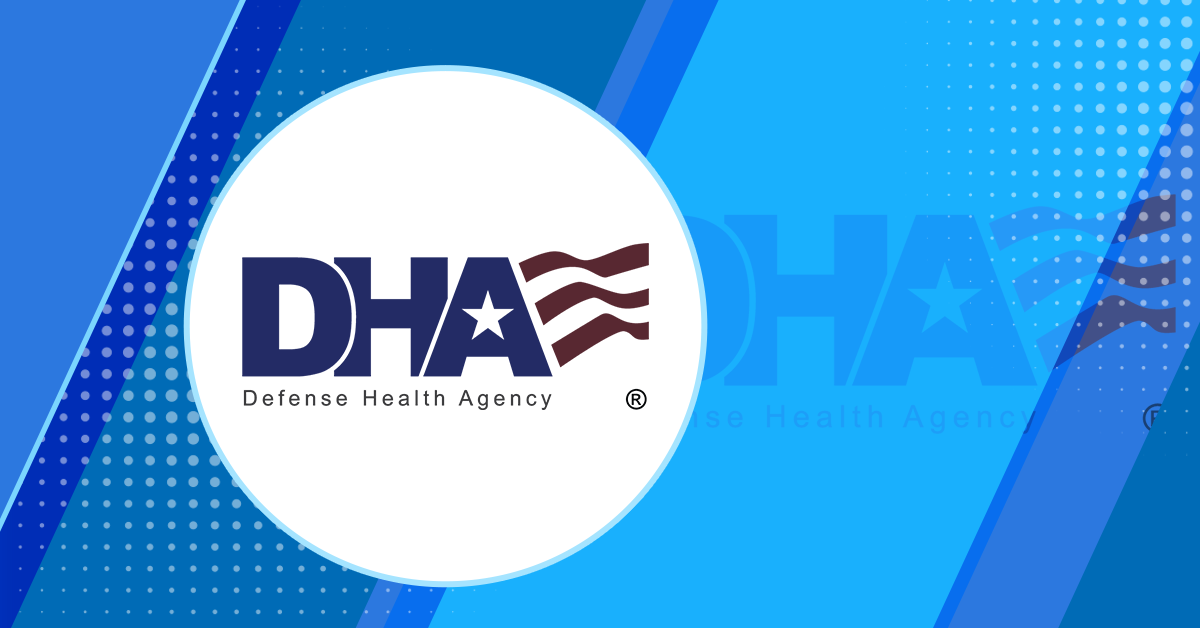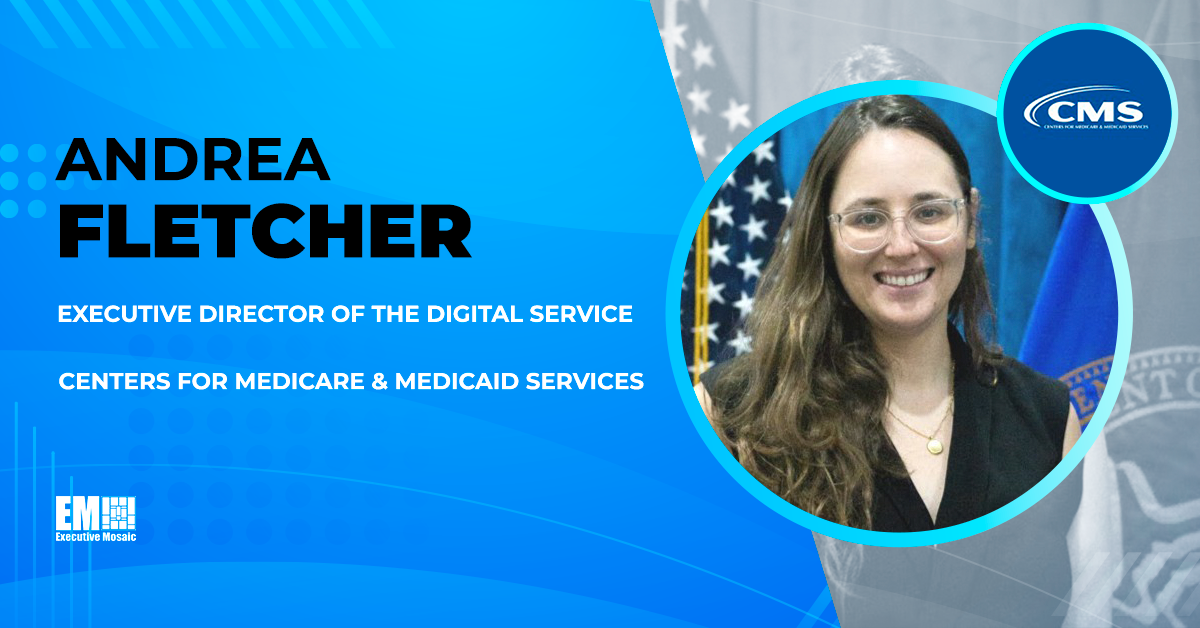The military healthcare system is a microcosm for the broader general healthcare challenges and setbacks the U.S. is facing: a lack of unification and standardization, resources spread too thin and deficiencies in technical modernization. All of these challenges, in addition to the added urgency and geographical expansiveness of the mission, makes defense health “an essential element of national security,” according to a statement from Defense Health Agency Director Lt. Gen. Telita Crosland.
Crosland, who is a Wash100 Award winner, was quoted by Dr. Brian Lein, assistant director of healthcare administration for the DHA, at the Potomac Officers Club’s 2023 Healthcare Summit on Wednesday. During a keynote address, Dr. Lein shared with the audience of government contracting executives the areas in which he believes the military health system can be strengthened.

The Healthcare Summit was a rousing success, and POC’s last event of the year. Don’t miss out on its first summit of 2024: the 10th annual edition of the always-fascinating Defense R&D Summit. This year’s symposium will feature Under Secretary of Defense for Research and Engineering Heidi Shyu, among other notable speakers. Register here for the Jan. 31 event today!
“We have to significantly improve how we’re taking care of our patients,” Dr. Lein stated emphatically. He described the splintered, decentralized nature of defense health currently: providers are entirely separate from labs for testing and pharmacies in a way that is inefficient. Plus, hospitals function very differently from one another, despite all being under the DHA. Dr. Lein cited how a nurse could be assigned two patients at a time at one hospital and eight simultaneously at another.
Furthermore, Dr. Lein said there is an unacceptable amount of error and poor execution by healthcare professionals occurring.
“If we had as many air accidents as we have wrong-site surgeries in the United States today, our airplanes will be grounded,” the DHA assistant director contended.
First, he said the system must be standardized and stabilized before it can be optimized. (In addition, some administrative burden has been lifted — when Crosland came aboard, they began a reorganization that saw his oversight responsibilities lessen from an unmanageable 23 direct report groups to nine.)
Then, he said modernization must be accelerated. There is a projected four ‘wave’ process map starting at Wave 0, which is the legacy health system and ending with Wave 3, denoting converged ecosystems. He said DHA and other agencies are presently in the midst of Wave 1 — digitization. The next step, Wave 2, will be digitalization.
Ultimately, Dr. Lein said, DHA is looking for ways to become a “truly integrated or converged system,” which he said cannot be done without private industry’s help.
“This group,” he instructed the largely GovCon audience, “you all are going to be instrumental to how we’re going to improve…it has to be a joint effort. DOD can’t do it by themselves.”
For more great insights from top government officials, browse the Potomac Officers Club’s slate of upcoming events in 2024. From AI to space to all of the DOD service branches, we’ve got you covered.







